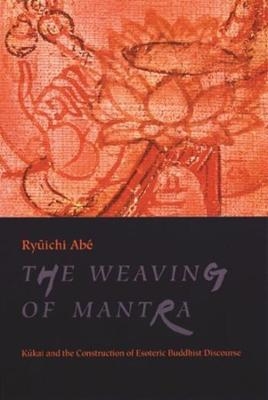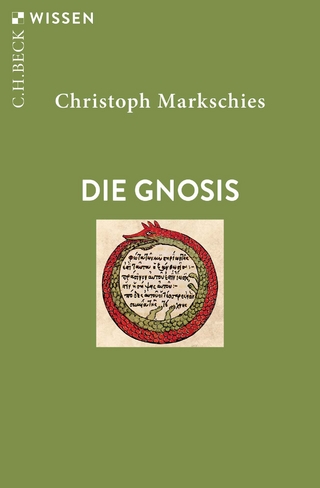
The Weaving of Mantra
Columbia University Press (Verlag)
978-0-231-11287-1 (ISBN)
The great Buddhist priest Kukai (774-835) is credited with the introduction and establishment of tantric -or esoteric -Buddhism in early ninth-century Japan. In Ryuichi Abe examines this important religious figure -neglected in modern academic literature -and his profound influence on Japanese culture. Offering a radically new approach to the study of early religious history -combining historical research, discourse analysis, literary criticism, and semiology -Abe contends that the importance of Kukai's transmission of esoteric Buddhism to Japan lay not in the foundation of a new sect but in his creation of a general theory of language grounded in the ritual speech of mantra. embeds Kukai within the fabric of political and social life in ninth-century Japan and explains how esoteric Buddhism played a crucial role in many societal changes in Japan -from the growth of monasteries into major feudal powers to the formation of the native phonetic alphabet, kana. As Abe illustrates, Kukai's writings and the new type of discourse they spawned also marked Japan's transition from the ancient order to the medieval world, replacing Confucianism as the ideology of the state.
Abe begins by placing Kukai's life in the historical context of medieval Japan and the Ritsuryo state, then explores his interaction with the Nara Buddhist intelligentsia, which was seminal to the introduction of esoteric Buddhism. The author discusses Kukai's magnum opus, () and introduces a number of Japanese and Chinese primary-source texts previously unknown by Western-language scholars. Instead of tracing Kukai's thought through literal readings, explores the rhetorical strategies Kukai employed in his works, shedding valuable light on what his texts meant to his readers and what his goals were in creating a discourse that ultimately transformed Japanese culture. The great Buddhist priest Kukai (774-835) is credited with the introduction and establishment of tantric-or esoteric-Buddhism in early ninth-century Japan. In The Weaving of Mantra, Ryuichi Abe examines this important religious figure-neglected in modern academic literature-and his profound influence on Japanese culture.
Offering a radically new approach to the study of early religious history-combining historical research, discourse analysis, literary criticism, and semiology-Abe contends that the importance of Kukai's transmission of esoteric Buddhism to Japan lay not in the foundation of a new sect but in his creation of a general theory of language grounded in the ritual speech of mantra. The Weaving of Mantra embeds Kukai within the fabric of political and social life in ninth-century Japan and explains how esoteric Buddhism played a crucial role in many societal changes in Japan-from the growth of monasteries into major feudal powers to the formation of the native phonetic alphabet, kana. As Abe illustrates, Kukai's writings and the new type of discourse they spawned also marked Japan's transition from the ancient order to the medieval world, replacing Confucianism as the ideology of the state. Abe begins by placing Kukai's life in the historical context of medieval Japan and the Ritsuryo state, then explores his interaction with the Nara Buddhist intelligentsia, which was seminal to the introduction of esoteric Buddhism.
The author discusses Kukai's magnum opus, Ten Abiding Stages on the Secret Mandalas (Himitsu mandara jujushinron) and introduces a number of Japanese and Chinese primary-source texts previously unknown by Western-language scholars. Instead of tracing Kukai's thought through literal readings, The Weaving of Mantra explores the rhetorical strategies Kukai employed in his works, shedding valuable light on what his texts meant to his readers and what his goals were in creating a discourse that ultimately transformed Japanese culture.
Ryuichi Abe is Kao Associate Professor of Japanese Religious Studies in the Departments of Religion and East Asian Languages and Cultures at Columbia University. He is the coauthor of Great Fool: Zen Master Ryokan-Poems, Letters, and Other Writings, and has been a recipient of the Philip and Ruth Hettleman Award for distinguished teaching.
Acknowledgments Interaction of Kukai with the Nara Clergy Illustrations Introduction 1. Kukai and (Very) Early Heian Society: A Prolegomenon Part I. Origins, Traces, Nonorigin 2. Kukai's Dissent: Of Mendicancy and Fiction 3. Journey to China: Outside Ritsuryo Discourse 4. (No) Traces of Esoteric Buddhism: Dharani and the Nara Buddhist Literature Part II. Cartography 5. Category and History: Constructing the Esoteric 6. The Discourse of Complementarity: Constructing the Esoteric II Part III. Writing and Polity 7. Semiology of the Dharma; or the Somaticity of the Text 8. Of Mantra and Palace: Textualizing the Emperor, Calamity and the Cosmos 9. Genealogy of Mantra and Kukai's Legacy Post-Script Problems of the Category of Heian Buddhism Kukai and the Limitation of Kuroda's Kenmitsu Theory Glossary Abbreviations Notes Selected Bibliography Index
| Erscheint lt. Verlag | 25.10.2000 |
|---|---|
| Zusatzinfo | 5 photos |
| Verlagsort | New York |
| Sprache | englisch |
| Maße | 159 x 254 mm |
| Themenwelt | Geschichte ► Teilgebiete der Geschichte ► Religionsgeschichte |
| Geisteswissenschaften ► Religion / Theologie ► Buddhismus | |
| ISBN-10 | 0-231-11287-4 / 0231112874 |
| ISBN-13 | 978-0-231-11287-1 / 9780231112871 |
| Zustand | Neuware |
| Haben Sie eine Frage zum Produkt? |
aus dem Bereich


